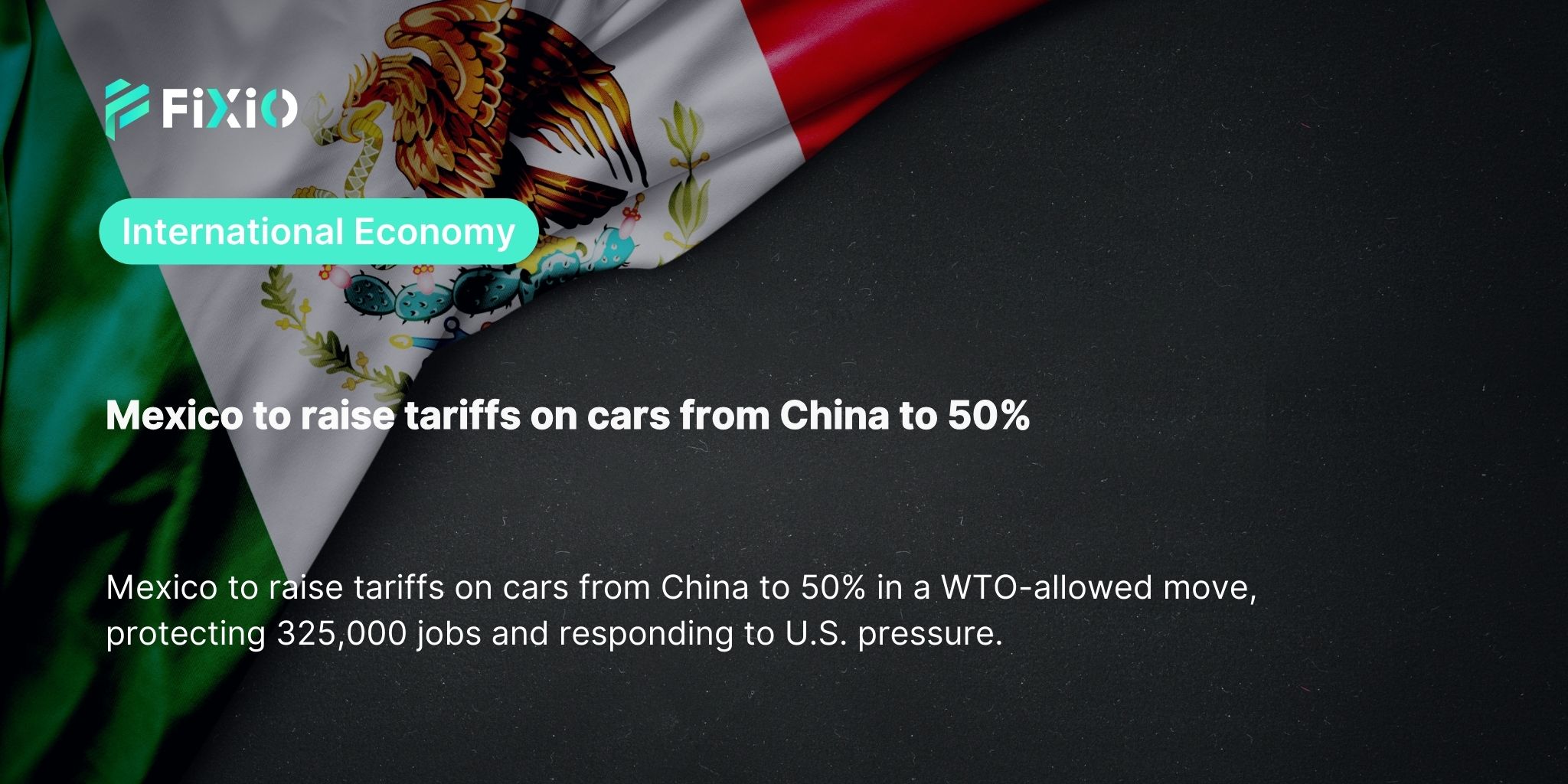
Mexico to raise tariffs on cars from China has become one of the most significant trade policy announcements of 2025. The government confirmed that duties will rise to 50%, the maximum permitted under the World Trade Organization rules. Officials say the plan will protect jobs, while analysts see it as a response to U.S. pressure amid intensifying U.S.-China trade tensions.
Currently, Chinese vehicles imported into Mexico face a 20% tariff. Under the new rules, Mexico to raise tariffs means duties will jump to 50%. Economy Minister Marcelo Ebrard explained that Chinese cars were being sold “below reference prices,” which threatened the survival of domestic automakers. He emphasized that without protective measures, local producers would lose competitiveness. The overhaul also targets other industries. Tariffs of up to 50% will apply to textiles, 35% on steel, and significant levies on toys and motorcycles. Altogether, the measures affect $52 billion worth of imports, or 8.6% of Mexico’s inbound trade.
The government projects that raising tariffs will safeguard 325,000 industrial and manufacturing jobs. These roles had been under pressure due to cheap imports from Asia. In addition, Mexico expects to generate an extra $3.76 billion in tariff revenues next year. Officials argue this revenue will strengthen public finances while protecting strategic industries. For workers, the policy is welcomed as a shield against layoffs and outsourcing. But consumers may face higher prices on imported vehicles and household goods. Economists caution that Mexico to raise tariffs could fuel inflation if companies transfer added costs to buyers. 
Beijing swiftly condemned the move. China’s foreign ministry labeled the policy “coercive” and argued it undermines free trade. Spokesperson Lin Jian warned that China would “resolutely safeguard its rights and interests.” The response underscores China’s view that Mexico to raise tariffs is politically motivated rather than economically justified. Chinese officials also urged Mexico to focus on global economic recovery instead of protectionism. However, with Mexico’s Congress controlled by the ruling party, approval of the plan is expected without major obstacles.
Washington has encouraged Latin American countries to reduce reliance on China. Analysts argue that Mexico to raise tariffs is as much about geopolitics as economics. Mariana Campero of the CSIS Americas Program remarked: “The U.S. is not going to allow China to use Mexico as a backdoor.” Mexico’s trade deficit with China has doubled in the last decade, hitting $120 billion in 2024. The tariff hike signals to Washington that Mexico is aligning with U.S. interests while safeguarding its domestic industries.
Some analysts expect a temporary spike in sales of Chinese cars before tariffs fully apply. But over time, Mexico to raise tariffs will likely reduce the competitiveness of Chinese imports and benefit vehicles produced locally or imported from countries with trade agreements. Banco BASE economist Gabriela Siller explained that tariffs on nations without free trade deals serve dual purposes: increasing government revenue and improving relations with the U.S. administration. This reflects Mexico’s effort to balance sovereignty with economic dependence on its northern neighbor.
Mexico exports millions of cars to the United States under the USMCA. This free trade deal has shielded Mexico from U.S. tariffs in the past. With USMCA due for review next year, Mexico to raise tariffs may strengthen its bargaining position. By restricting Chinese imports, Mexico shows goodwill toward Washington before renegotiations.
Critics caution that protectionist measures can backfire. While Mexico to raise tariffs may save jobs in the short run, it could also drive up prices and slow economic growth. Economy Minister Ebrard himself had previously spoken against tariffs, noting they can conflict with goals of promoting growth and keeping inflation under control. Investors also worry that foreign companies may view Mexico’s policy as a sign of increasing trade barriers. Long-term competitiveness, they argue, requires innovation and productivity rather than higher tariffs.
Mexico to raise tariffs on cars from China to 50% marks a turning point in its trade policy. It highlights the country’s attempt to balance domestic priorities with international pressures. While the government seeks to protect jobs and revenue, the decision also underscores how global power rivalry is shaping Mexico’s economic path.  Stay informed with the latest Forex trading news and analysis. Visit our website now at: https://fixiomarkets.com/en/prex-blogs
Stay informed with the latest Forex trading news and analysis. Visit our website now at: https://fixiomarkets.com/en/prex-blogs
Mexico to raise tariffs on cars from China to 50% in a WTO-allowed move, protecting 325,000 jobs and responding to U.S. pressure.
Superior trade execution & trading conditions with the NDD method.

The online FX industry provides a platform for investors worldwide to engage in the buying and selling.

Subscribe to our daily newsletter and get the best forex trading information and markets status updates
Trade within minutes!
Comment (0)